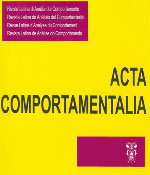Educação terapêutica para a pacientes com dermatite atópica e seus cuidadores: uma revisão sistemática
Main Article Content
Abstract
Atopic dermatitis (AD) is a chronic skin condition of unknown etiology that commonly affects children. In last years, the AD’s incidence increased in world-wide. The most common symptoms are a red, imflamed and itchy rash in skin and can be treated by the use of topical drugs, like ointments, creams and, in some cases, systemic drugs, like injections. In order to avoid recurrences, therapy should be maintained, and it is mandatory to establish treatment routines to control symptoms. Frequently, keeping an adherence to prescribed therapy is a challenge to patients and caregivers. One strategy that has been proposed as an effective way to enhance adherence to medical prescriptions in AD is therapeutic education programs (TE). These programs consist of advice and motivation techniques applied to patients and caregivers, in order to improve compliance with medical recommendations, and give them a better quality of life. The goal of the present study is to evaluate the quality of scientific evidences that support these programs, especially for children and adolescents with AD and their caregivers. A systematic review of studies about TE in children and adolescents with AD, published between 2000 and 2010, was performed. From 115 articles identified and analysed by the authors, nine were considered eligible for this review. In these studies, the main objective was to evaluate efficacy of intervention programs by using different variables as quality of life indexes, amount of skincare products applied to skin, and degree of knowledge and information about the disease. All studies included parents and/or caregivers and in seven studies included them and the children and/or adolescents with AD. Six studies used as research design a prospective, randomized controlled trial, one a randomized controlled multicenter trial, one a single case research design and another one didn’t specify the research designed adopted. Seven studies made 1-year-follow-up assessment. This discrepancy of methods used in each study does not permit the comparison of outcomes. Furthermore, the paucity of information describing applied methods and the contents of each intervention session make any attempt of study replication by other authors a difficult task. Despite these limitations, outcomes from research point to the effectiveness of educational programs directed to children and adolescents with AD and their caregivers.
Article Details
How to Cite
Zazula, R., Caserta Gon, M. C., Del Giudice Machado, B., Frasson Pontes, L. C., Andrade, P., & Garcia de Almeida Moraes, R. (2011). Educação terapêutica para a pacientes com dermatite atópica e seus cuidadores: uma revisão sistemática. Acta Comportamentalia, 19(2). Retrieved from https://journals.unam.mx/index.php/acom/article/view/28039

<a rel="license" href="http://creativecommons.org/licenses/by-nc-sa/4.0/"><img alt="Licencia de Creative Commons" style="border-width:0" src="https://i.creativecommons.org/l/by-nc-sa/4.0/88x31.png" /></a><br />Este obra está bajo una <a rel="license" href="http://creativecommons.org/licenses/by-nc-sa/4.0/">licencia de Creative Commons Reconocimiento-NoComercial-CompartirIgual 4.0 Internacional</a>.
